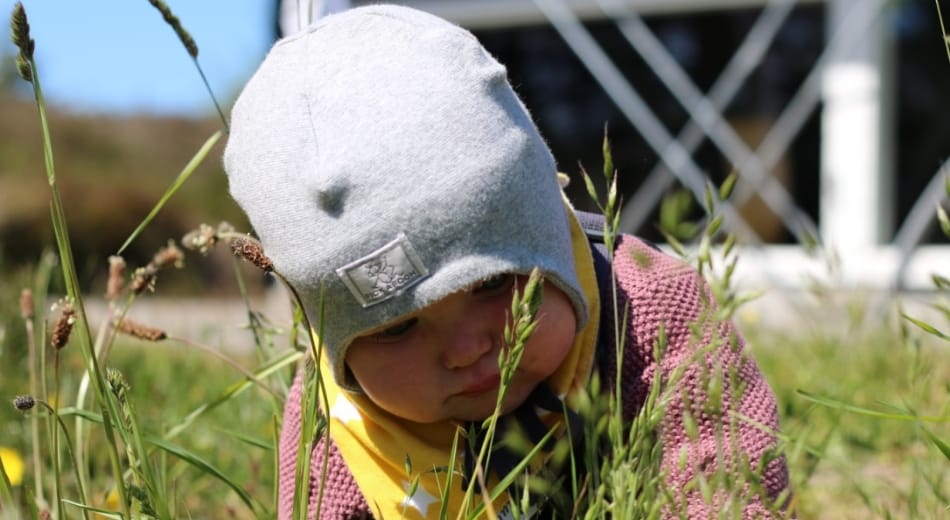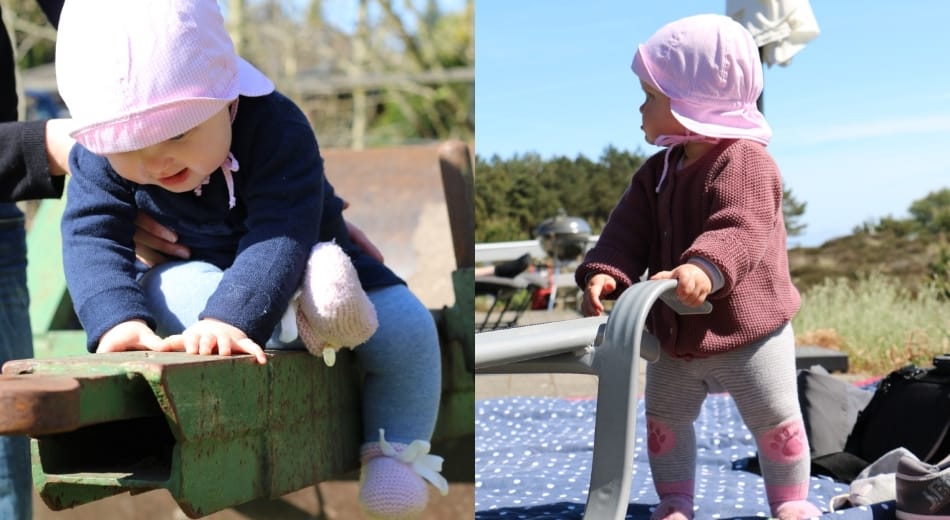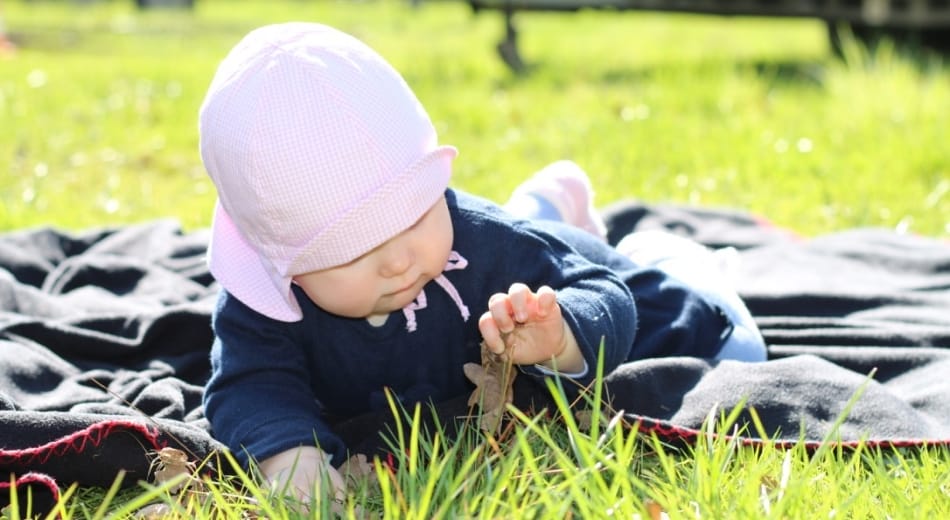Unique stories
“We’re not in port yet” – thoughts of a grandfather

When the news came, I was stunned.
Cancer.
Eye cancer.
My granddaughter.
Just over four months old!
Diagnosis: Retinoblastoma.
Retino-what??? As a student, I worked in a hospital on the side for a few semesters and picked up a lot there.
Since then, I’ve been going through life with a “dangerous” quarter of medical knowledge.
I’ve heard and read a lot about diseases, like everyone else, but I’d never heard the word retinoblastoma before that day.
Relatives, friends, acquaintances, colleagues, no one had ever heard the word – let alone the fact that these tumors only occur in small children, often develop dramatically quickly and are so difficult to detect.

Realism and the courage to look to the future, whatever it may look like for Isabel, are the head tools that we are all still using today.
We have learned that these tools can also rekindle optimism and hope after the doom and gloom of the first few hours.
I experienced overwhelming proof of this at the RB meeting of the Children’s Eye Cancer Foundation in Düsseldorf.
Grandpa Eckhard was allowed to come along.
Suddenly I found myself as part of a community of destiny, as if I had been part of it forever.
I was surprised, inspired and, yes, comforted by the naturalness with which children who had lost part of their sight dealt with their
everyday lives and celebrated a happy get-together with each other and their parents and grandparents.
It still moves me.
Never before had I experienced such a large number of people approaching each other and spending time together with almost tangible empathy and great mutual respect.
I asked myself there whether it really always takes a bad shared experience for people to realize what is really important.
And how many unimportant things we often worry about.
The question “Why Isabel?”, as big as it was helpless at the beginning, still nags at me today.
But it has faded – and even more so after the meeting in Düsseldorf.
It was clear from the start that there was no answer to the question, but I would still have liked to have had one.
Now I don’t need one because I learned more in the first year of my granddaughter’s life than in many of my own.
She has long since become a “completely normal” grandchild again, like all the little ones I saw in Düsseldorf.
And they weren’t the only ones who helped me, the grandfather, who experienced everything from the second row.
They were also the ones who encouraged me, some of whom have been living with a visual impairment for many years.
I had long conversations with Thommy from Kiel.
After just a few minutes, he was like a good friend telling a “newbie” like me about his experiences.
About how it works to lead a completely normal life with only one eye.
Balm for someone who is still teetering a little between gratitude for and trepidation about what they have achieved.
It’s good to see that someone can be like Thommy as an adult despite this illness: thinking positively, with both feet firmly on the ground and at peace with everything.
Hello Thommy!
Thanks to the treatment options at Essen Hospital, which are probably unique in the world, and the huge amount of luck Isabel has had so far, she will in all likelihood keep one eye that is almost 100% healthy and one with limited vision.
Not all children have been as lucky as her.
But I also know that her journey is not over yet, even if we can now see land on the horizon.
“We did a great job on that trip,” I once said many years ago to my old skipper friend, with whom I often sailed on the Baltic Sea.
We had just passed Kiel Lighthouse on his sailing yacht.
His response to my positive conclusion came in six dry words: “We’re not in port yet.”
That doesn’t just apply to us today, to Isabel and her family.
So I wish everyone who is still on their way a happy journey.
